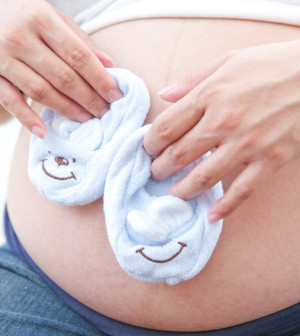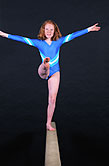- 10 Strategies to Overcome Insomnia
- Could Artificial Sweeteners Be Aging the Brain Faster?
- Techniques for Soothing Your Nervous System
- Does the Water in Your House Smell Funny? Here’s Why
- Can a Daily Dose of Apple Cider Vinegar Actually Aid Weight Loss?
- 6 Health Beverages That Can Actually Spike Your Blood Sugar
- Treatment Options for Social Anxiety Disorder
- Understanding the Connection Between Anxiety and Depression
- How Daily Prunes Can Influence Cholesterol and Inflammation
- When to Take B12 for Better Absorption and Energy
Excessive Sports Training Hurts Kids, Expert Warns


Sports provide children with many benefits, but kids can get injured if they push themselves too hard, an expert says.
“Children are not little adults,” said Dr. Alexis Colvin, chief medical officer of the United States Tennis Association.
“There are inherent limitations to a child’s endurance and strength capacity, which is why we as parents must protect our children from excessive training and injuries,” explained Colvin, who is also an orthopedic surgeon at Mount Sinai Hospital in New York City.
Parents need to make sure that young athletes practice the right way. For example, training for 7- and 8-year-olds should be limited to two to three times a week, with days of rest in between. Youngsters should do 5 to 10 minutes of dynamic warm-up before each practice, working on muscles symmetrically, she said.
Recovery should be a priority because it “is the most important component of being able to train and compete on a regular basis,” Colvin said in a hospital news release.
Also, young athletes should take a break from competition or sport-specific training one to two days a week, she added.
“This allows your child to rest not only physically, but also psychologically,” Colvin explained.
Training time and amount should never increase by more than 10 percent a week, and young athletes should take two to three months off a year from their focused sport, she added. Parents also need to be alert for problems such as pain, fatigue and/or poor school performance.
Remember, too, that heat and humidity pose a risk to young athletes.
“Children absorb heat quicker, have delayed sweating mechanisms, and may be at risk for heat injuries in humid weather,” Colvin said.
Be sure that children drink fluids when playing sports or training, she said, and tell them to alert their parents and coaches if they need a break.
More information
The American Academy of Family Physicians explains how to keep children active.
Source: HealthDay
Copyright © 2026 HealthDay. All rights reserved.










